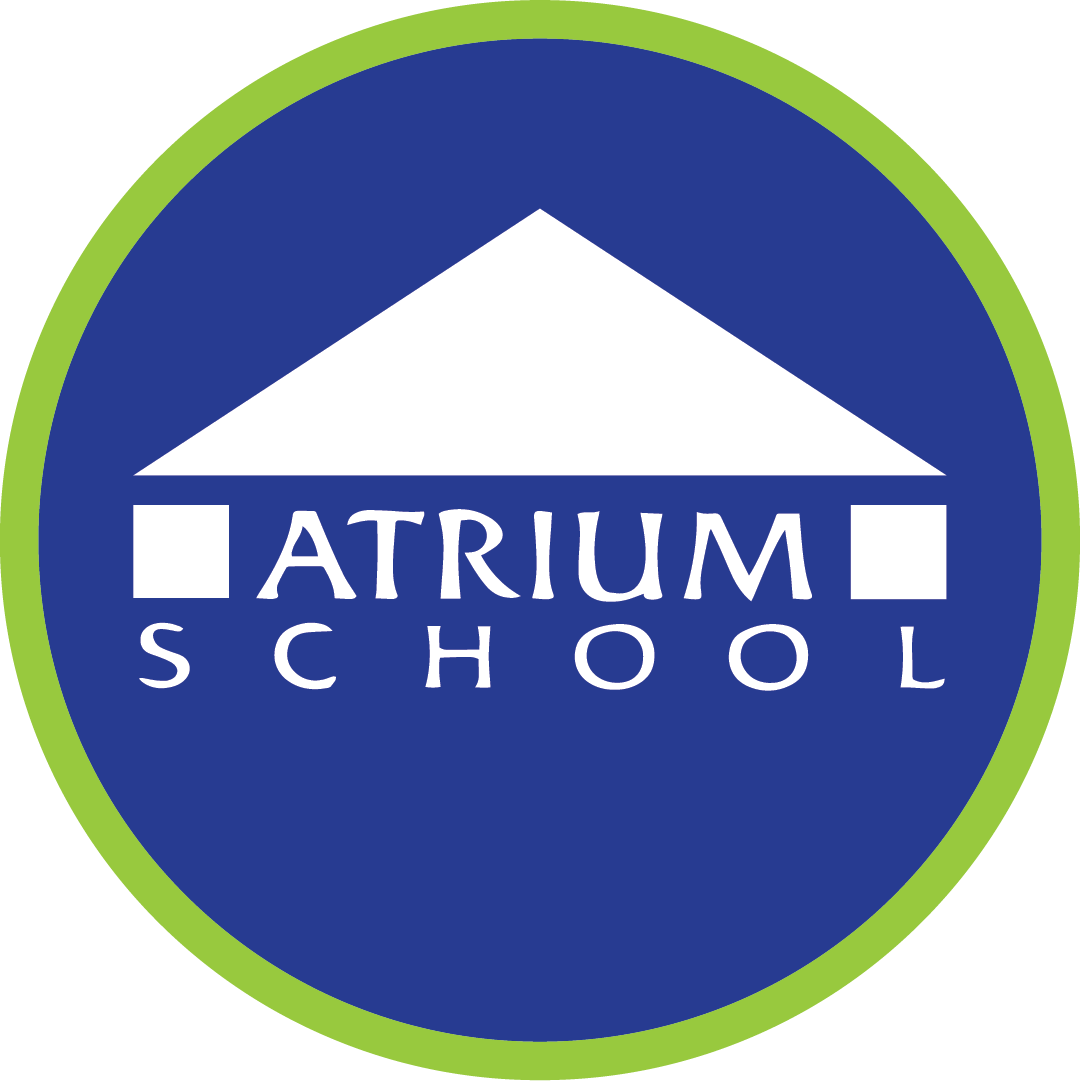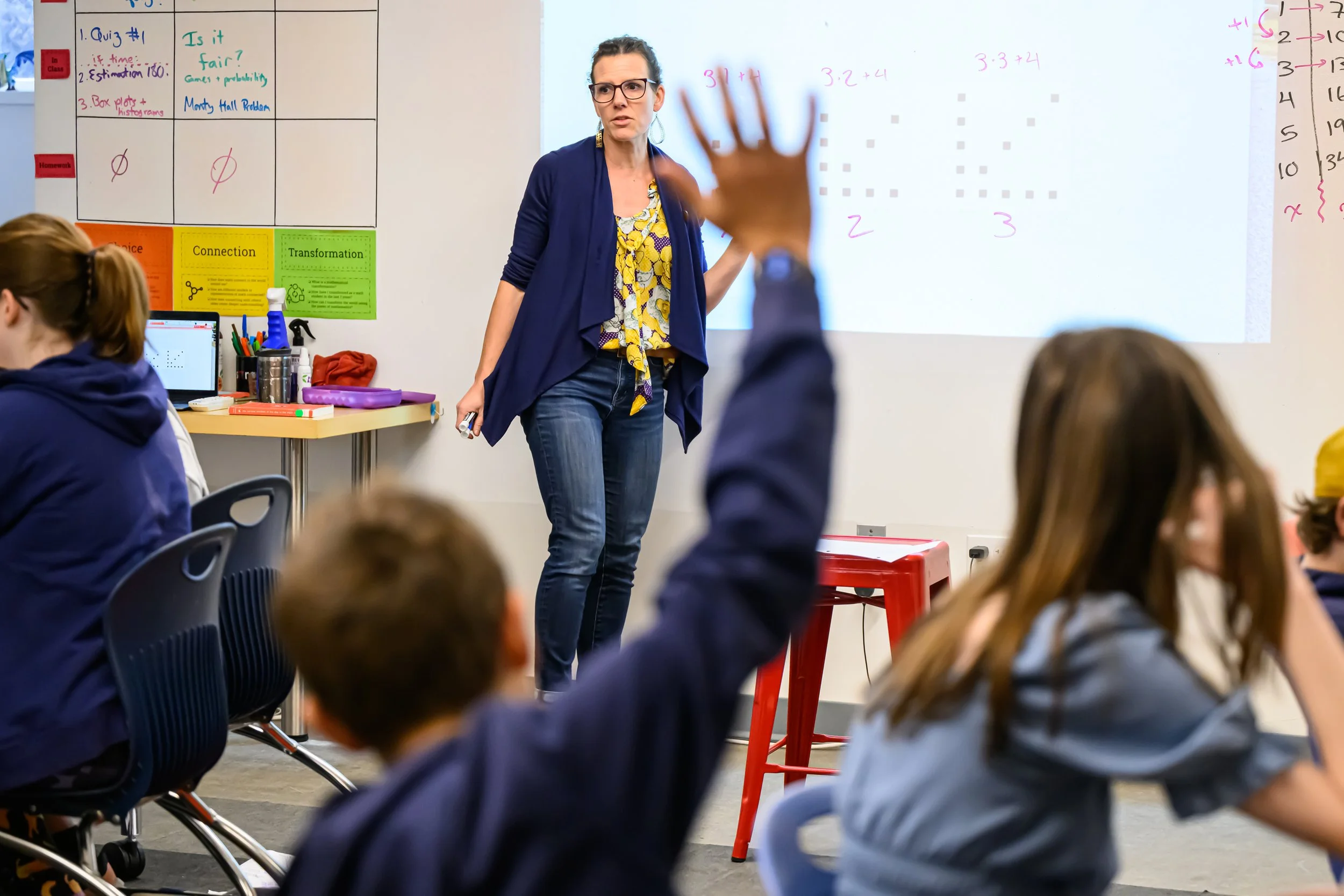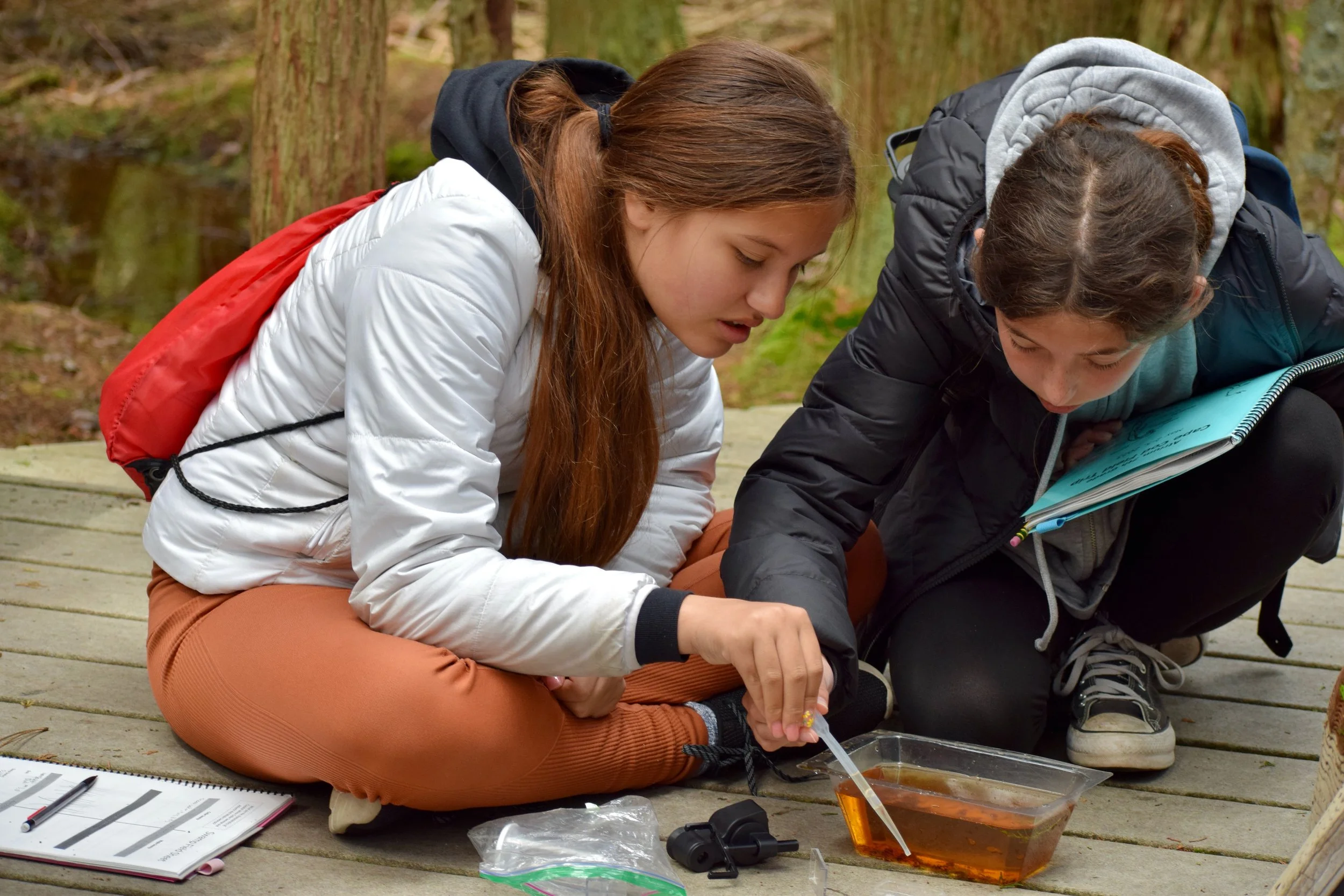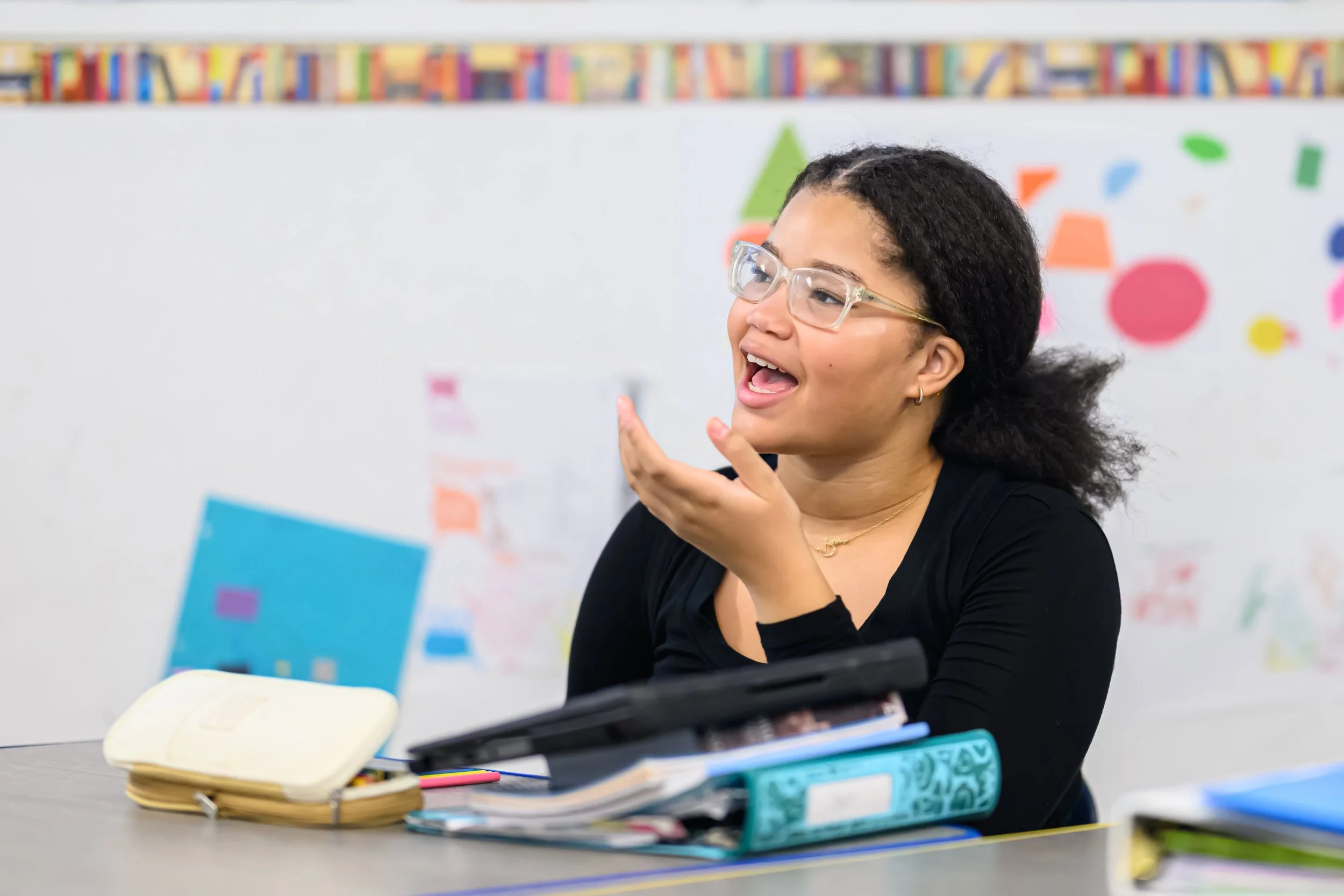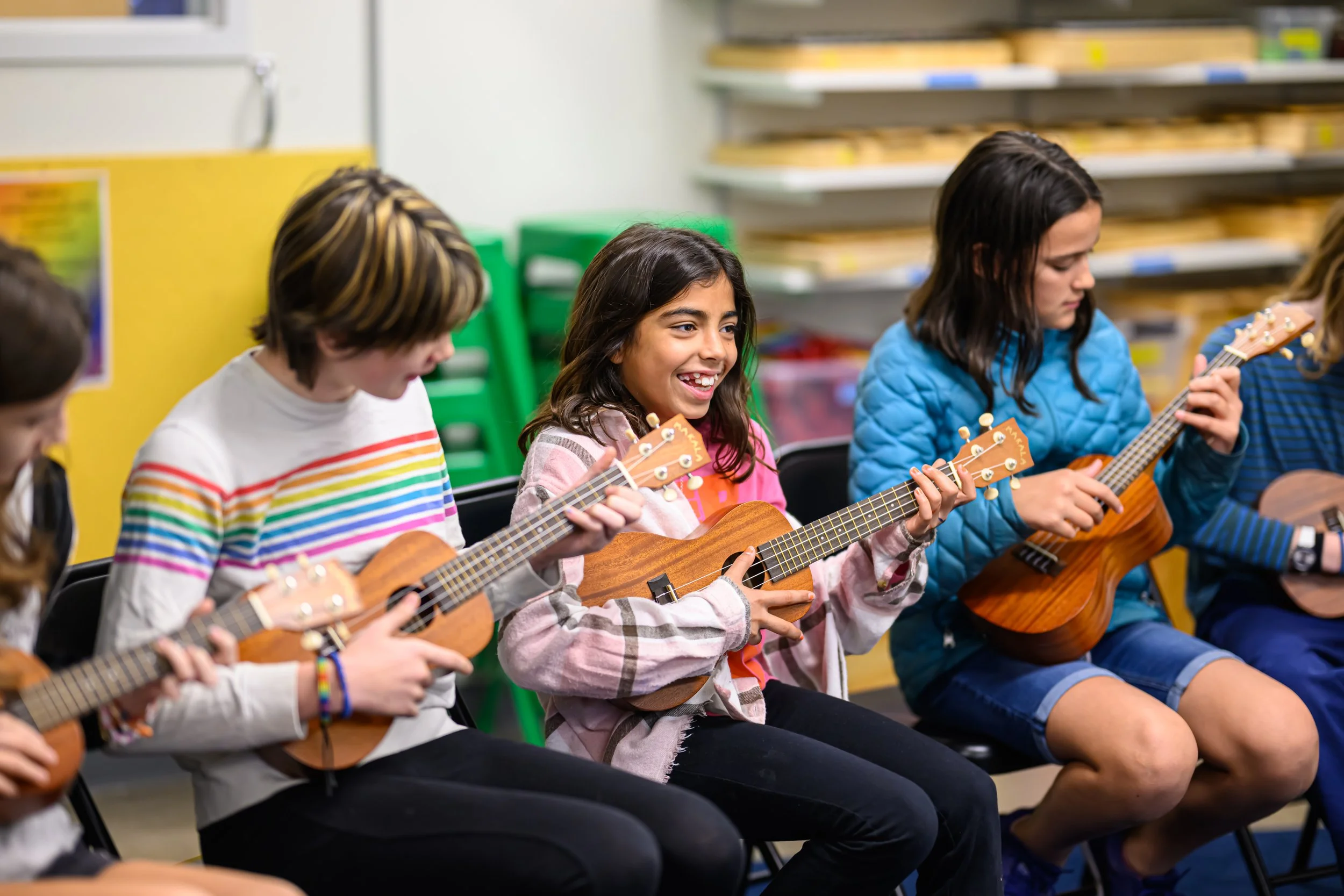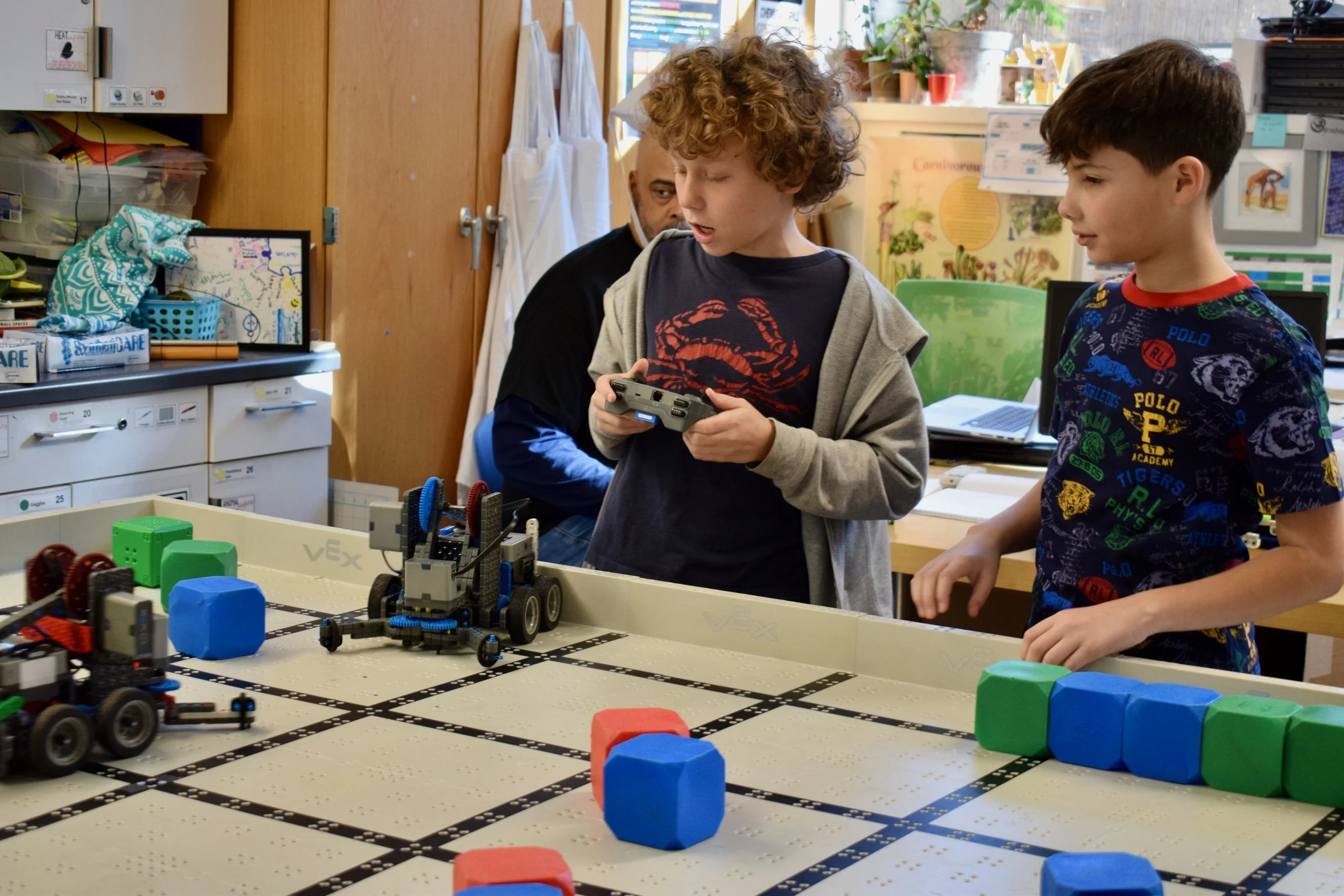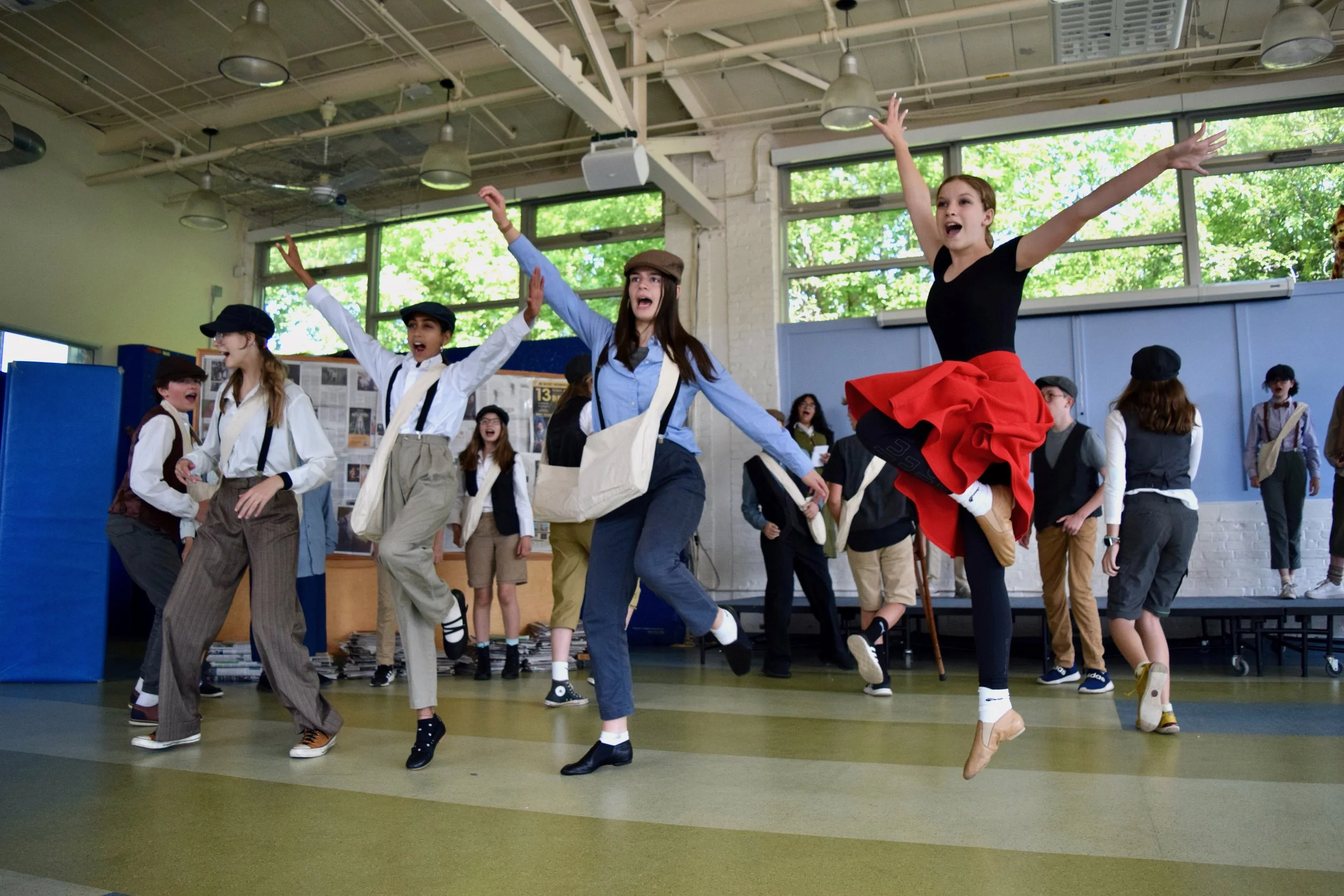Middle School (Grades 6 – 8)
Atrium’s Middle School is designed to meet the unique needs of 11- to 14-year-olds, who are immensely curious, adventurous, and eager to experience progressively more independence as they move beyond the elementary years. As students mature over the three years of Middle School, they grow as abstract thinkers and confident advocates for themselves and others. Through deep engagement with academic, social, and emotional learning, students cultivate a strong sense of self and responsibility as members of both local and global communities. Our goal is for every student to grow into a kind, conscientious, and inquisitive member of the Atrium community – and the broader communities they will join after graduation.
Expanding Horizons
Building upon the essential skills developed during the Lower School experience, our Middle School program encourages intellectual curiosity, challenge, collaboration, and choice for each student within an inclusive and supportive learning environment. Students engage in core academic subjects – English Language Arts, Math, Science, Social Studies, and Spanish Language – within grade-level cohorts, while building connections across the grades through advisory, the arts, physical education, and interdisciplinary classes. As Middle School students grow their academic understanding in and across subjects, they gain insight into their own learning and develop strong identities as independent and lifelong learners.
Project-Based and Experiential Learning
In-depth projects and fieldwork opportunities are woven throughout the course of each Middle School year. At Atrium, project-based learning allows students to deepen their knowledge and apply the skills they have learned in class to real-world settings. In Middle School, key projects range from the Grade 7 Crossroads Project – an interdisciplinary investigation of place and sustainability through architecture, culture, history, and geography – to the Grade 8 Life on a Budget, where students act as financial advisors to plan a budget for an individual, analyzing tax brackets, wage gaps, and systemic inequality. Each year also includes an introductory or capstone field trip; middle schoolers explore the farm, ocean, and city during their impactful overnight trips to New Hampshire, Cape Cod, and D.C., diving into our land’s history, culture, ecology, and more.
Social-Emotional Learning (SEL)
Social-emotional learning is integrated into the daily curriculum in Middle School, supporting students in developing still greater independence, self-awareness, and relational skills as they navigate the complexities of adolescence. Atrium fosters a safe yet challenging learning environment where students are encouraged to take risks, learn from mistakes, and integrate the values of kindness, responsibility, and respect into their everyday actions and decisions. Programs including WISHES (Wellness, Identity, Sexuality, Health, Equity, and Social Justice), Restorative Justice Circles, and weekly Community Time meetings provide structured opportunities for middle schoolers to build empathy, connection, and conflict resolution skills, and to make healthy choices – socially, emotionally, and physically.
Democratic Classrooms and Student-Driven Learning
Students help to shape the Middle school learning experience. Student Forum, an elected body of student representatives guided by a faculty advisor, works to discuss and work through matters of consequence to the Middle School. The Middle School Leadership program provides stewardship opportunities that support the larger school community. And Flex Time electives are proposed, planned, and led by students sharing a particular passion or skill with their peers. A democratic classroom empowers students to grow as citizens and community members, developing the voice and agency they will need to engage with learning and the larger world after their time at Atrium.
A Diverse and Inclusive Environment
Atrium middle schoolers deepen their understanding and appreciation for diverse perspectives, cultures, and experiences through meaningful, socially-conscious learning. The principles of equity and inclusion are intentionally woven into Atrium’s curricula, explored as essential themes across all subjects. Hands-on experiences, such as the Music for Food Benefit Concert, partnerships with Urban Improv and other community organizations, and justice-oriented interdisciplinary projects like Climate Refugees, help students engage in real-world issues with empathy and action. These opportunities reinforce the benefits of inclusion and the enduring value of learning from those whose lives and experiences may differ from one’s own.
Family Engagement
Family engagement and collaboration remain key in the Middle School years, even as students begin to take more ownership of their own learning. Teacher advisors act as the academic liaison between students, families, and other Middle School teachers, and play a critical role in supporting students and their families throughout their time in Middle School. As in the Lower School grades, curriculum presentations, all-school assemblies, community events, and triannual family-teacher conferences – now led by the student themself – are a few examples of the many ways families can continue to connect with and build upon the school community. Beginning in the spring of seventh grade, families and students also work closely with the Head of School to navigate the Next Schools process in preparation for high school admissions.
Community Approach
In Grades 6-8, students assume important roles within the Middle School, Atrium School, and the larger Watertown community. The Middle School community is built through shared whole-group activities, routines, and traditions. As the oldest students in a PreK – Grade 8 school, middle schoolers also become leaders within the school community. Through Early Childhood Buddies, campus Stewardship groups, and Constellations – multi-age groups that meet monthly for community-building activities – Middle School students connect with and act as role models for our younger students. Beyond campus, students choose Service Learning organizations in Watertown to support throughout the year. Recent examples include supporting seniors at Brigham House Assisted Living, stocking local community fridges and the Watertown Food Pantry, and maintaining portions of the Watertown-Cambridge Greenway.
Core Subjects
-
In Middle School English Language Arts, our goal is to help students grow into confident, independent readers and writers who recognize language as a powerful part of their identity and voice. Reading and writing instruction are woven together as students explore diverse literary genres, authors, and perspectives. Throughout their Middle School years, students experiment with a range of writing styles and strategies, from creative storytelling to analytical essays. They learn to read closely, think critically, and engage in meaningful discussions that deepen understanding. Collaboration and feedback are central to our process, as students refine their ability to organize ideas, support arguments with evidence, and communicate with clarity and purpose.
-
Atrium Middle School mathematics is guided by four essential questions:
What is math?
What is the pattern, and how can I represent it?
How does math connect to the world around me?
How am I a mathematician?
Students engage in creative, open-ended problem-solving that emphasizes both real-world applications and the beauty of mathematical thinking. Students are not tracked according to their ability levels; all students work at the same grade level on a foundational concept with multiple opportunities for individual challenge and support. This often allows students to surpass the typical Middle School math curriculum, diving into high-school-level skills and concepts by the end of eighth grade.
-
Middle School science at Atrium is hands-on and engaging, building students’ scientific literacy, inquiry, and communication skills throughout a three-year progression. Students learn to ask testable questions through directed and independent experimentation, using tools and models to investigate and explain scientific phenomena. They collect and analyze real-world datasets, explore local ecosystems, engage in debate, and tackle curiosity-driven engineering challenges. Guided by a focus on sustainability and scientific responsibility, Atrium middle schoolers take an integrated approach to studying Earth science, biology, ecology, chemistry, and physics.
-
The Middle School social studies program weaves the study of civilizations, governments, and past struggles for justice with the analysis of present-day inequities to help students better understand their responsibility to the world they inherit. The goal of the Atrium social studies program is for graduates to become informed, responsible citizens and positive changemakers. Through lenses of anthropology, archaeology, economics, geography, history, philosophy, psychology, religion, and sociology, middle schoolers deepen their understanding of historic and current events, while reflecting on the individual perspectives they bring.
-
The Atrium Spanish Language program helps students develop basic communicative competence, instills confidence in them as Spanish speakers, creates a joyful and exciting Spanish learning culture, and develops students’ understanding and appreciation of Spanish-speaking cultures and communities. In Middle School, students spend two Spanish language periods a week using the language in context and engaging with stories, texts, and songs. Classes include practice in all linguistic modes – listening, speaking, reading, writing – as well as targeting grammatical structures. Whenever possible, instruction is conducted in Spanish. The curriculum includes many speaking games, hands-on projects, and opportunities for increasingly complex conversation throughout the Middle School years.
Program Highlights
-
Three times a year, students take time away from their regular class schedule to dive deep into three content areas, led by expert adjunct faculty: Digital Storytelling, Robotics & Coding, and Food & Community. For two weeks, they spend each morning working in grade-level groups on a specific project tied to these content areas. Students rotate through all three clusters throughout the year. In the afternoons, students participate in interdisciplinary units where two core subject teachers co-teach and guide them through a robust project. Recent examples of these projects include: The Salem Witch Trials Study (Performing Arts and Social Studies), the Islamic Art and Culture Project (Social Studies, ELA, and Math), and the Barbie Bungee project (Math and Science).
-
Each Middle School student is part of a small advisory group of peers facilitated by a teacher advisor. Students start each day in Advisory, engaging in executive functioning work, get-to-know-you activities, individual goal-setting, group problem-solving, and more. A student’s advisor is their point person; advisors get to know students as learners, social beings, and complex, evolving individuals. The advisory group is like a family within the Middle School, and students remain with their group for all three years, building bonds with the other students across grade levels and growing into a leadership role within the advisory.
-
Students spend a trimester each in Music, Performing Arts, and Studio Art. This intensive arts rotation allows students to dive more deeply into extended creative projects and pursuits, from creating pieces of Documentary Theatre to designing mixed-media Sound Scarves. In partnership with the Community Music Center of Boston, students explore the creation, composition, and production of music, building on the fundamental theory they learned in earlier grades while expanding their musicality to incorporate new technologies and skills. Performing Arts in the Middle School years emphasizes ensemble, improvisation, and individual storytelling. In the art studio, students explore a variety of media and techniques by studying the works of traditional and contemporary artists, reflecting on the historical and cultural contexts of each piece as they create their own increasingly complex works of art.
-
During the week, students have one extended double Physical Education period, which allows them to travel out of the building and take advantage of recreation activities and facilities in the community. As part of PE, students participate in local activities such as rock climbing at Central Rock Gym and yoga at Artemis Yoga in Watertown. They also work with our on-site PE teacher for one trimester, developing physical skills, teamwork, and habits of healthy activity. Middle School students go outside twice a day for both snack and recess, giving them additional time to be active, recharge, and engage with our green campus.
-
Middle School offers a range of exciting after-school co-curricular activities to complement and enrich classroom learning. Each year, students may elect to participate in a variety of options, including Middle School Theatre (featuring a fall play and spring musical), Science Olympiad, Cross Country, Track & Field, and other arts and science-based enrichment groups.
